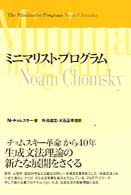- ホーム
- > 洋書
- > 英文書
- > Religion / Ethics
Full Description
To what extent was the evolution of secularism in South and Southeast Asia between the end of the First World War and decolonisation after 1945 a result of transimperial and transnational patterns? To capture the diversity of twentieth-century secularisms, Clemens Six explores similarities resulting from translocal networks of ideas and practices since 1918. Six approaches these networks via a framework of global intellectual history, the history of transnational social networks, and the global history of non-state institutions. Empirically, he illustrates his argument with three case studies: the reception of Atatürk's reforms across Asia and the Middle East; translocal women's circles in the interwar period; and private US foundations after 1945.
Contents
The Transnationality of the Secular
Travelling Ideas and Shared Practices of Secularism in Decolonizing South and Southeast Asia
Clemens Six
Abstract
Keywords
Introduction: The Possibility of Global Secularism Studies
1 Transnational Discourses on Secularism
2 Social Networks for a Secular State
3 Circuits of Expertise and Geopolitics
4 Conclusions
Abbreviations
References








